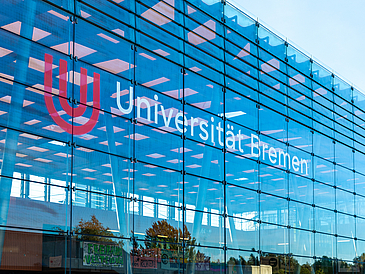The central objective of the “Resource Development in Service Work – RessourcE” competence center is to develop solutions for workplace health as well as human resource development for semi-skilled workers in logistics and health-related services. In addition, the researchers will test these solutions and examine whether they can be transferred to other economic sectors. Low-skilled work is defined as activities that do not require formal qualifications.
“The Aim: Promoting Career Development Prospects and Workplace Health”
Dr. Peter Bleses, head of the collaborative project from the Institute for Labour and Economy (iaw), explains why semi-skilled labor in the service industry is such an important research topic:
“So-called semi-skilled work may be readily available, but that doesn’t make it easy to carry out. On the contrary, this kind of work is often extremely demanding – physically or mentally. Just think of the hard labor in warehouses logistics or the physically and mentally challenging work in elderly care. Although employees in semi-skilled jobs often provide indispensable services, they usually have few career prospects leading to better-paid jobs.”
For northwest Germany, which is suffering from an increasing shortage of skilled workers that is holding back local economic development, better development prospects for semi-skilled workers can become a promising resource. It is therefore important to keep employees in semi-skilled work healthy, to show them career prospects, and, among other things, to enable them to find their way into skilled labor. According to Bleses, the focus should be on hands-on approaches: “We want to work together with practitioners to develop very specific tools that help employees and companies as effectively as possible and can be adapted to different needs. For this purpose, we have involved various partners in the project who have the necessary expertise to develop such tools.”
Close Collaboration in Competence Advisory Board
As the needs in the different sectors and activities are very diverse, the researchers develop a wide range of instruments. Examples include sensor-based, AI-supported exoskeletons for ergonomic support when lifting heavy loads such as general cargo in ports, and AI-supported tools for identifying potential in further training. Additionally, they are developing tools for managers to address different groups of employees in a culturally sensitive manner, adapting concepts for identifying and promoting workers’ skills, as well as promoting on-site learning and healthy ways of working with and on people.
Later, the researchers will implement the tools in the RessourcE competence center and make them available for broad practical use in northwest Germany. The competence center will network with other support services, such as the Federal Employment Agency. For this reason, the RessourcE project is pursuing a close cooperation with numerous partners from the fields of politics, associations, and institutions in the Northwest region, who will come together in an advisory board.
University of Bremen to Receive 2.8 Million Euros
At the University of Bremen, the Institute for Labour and Economy (iaw) is coordinating the Resource Development in Service Work – RessourcE project, while the Faculty for Business Studies & Economics and – as an affiliated institute – the Bremen Institute for Production and Logistics GmbH (BIBA) are also involved. The project is funded as part of the BMBF “Regional Competence Centers for Labor Research.” The total funding for the consortium with 15 partner organizations from research, development, and industry amounts to approx. 9.7 million euros. Of this amount, the University of Bremen receives approximately 2.8 million euros. The aim of the five-year funding phase is to establish and consolidate RessourcE as a local competence center for labor research in the greater metropolitan area of Oldenburg, Wilhelmshaven, Bremerhaven, and Bremen. The project is scheduled to run until 2028.
Further Information:
Project Partners:
- University of Bremen, Institute for Labour and Economy (iaw) and Business Psychology: field of work: Organizational Psychology.
- Economic and Social Academy of the Bremen Chamber of Labour
- care pioneers GmbH, Oldenburg
- Bremen Institute for Production and Logistics GmbH(BIBA) BIBA
- Jade University Wilhelmshaven / Oldenburg / Elsfleth, Institute for Technical Assistance Systems (ITAS)
- WearHealth UG, Bremen
- Initiative for Social Rehabilitation e.V. / FOKUS, Bremen
- AWO district association Weser-Ems e.V., Oldenburg
- Mensa cafeterias GmbH, Lilienthal
- vacances Mobiler Sozial- und Pflegedienst GmbH, Bremen
- PTS Packing, Transport, Services & Logistics GmbH, Bremen
- LOREL Logistics GmbH, Bremen
- Vollers Management Service GmbH, Bremen
- BLG Industrielogistik GmbH & Co. KG, Bremen
- J. MÜLLER Weser GmbH & Co. KG, Brake
Https://iaw.uni-bremen.de/projekte/laufende-projekte?proj=377 (currently in German only)
Contact:
Dr. Peter Bleses
Institute for Labour and Economy (iaw)
Head of Research Unit II: Perspectives for Sustainable Employability
University of Bremen
Phone: +49 421 218-61748
pblesesprotect me ?!uni-bremenprotect me ?!.de

